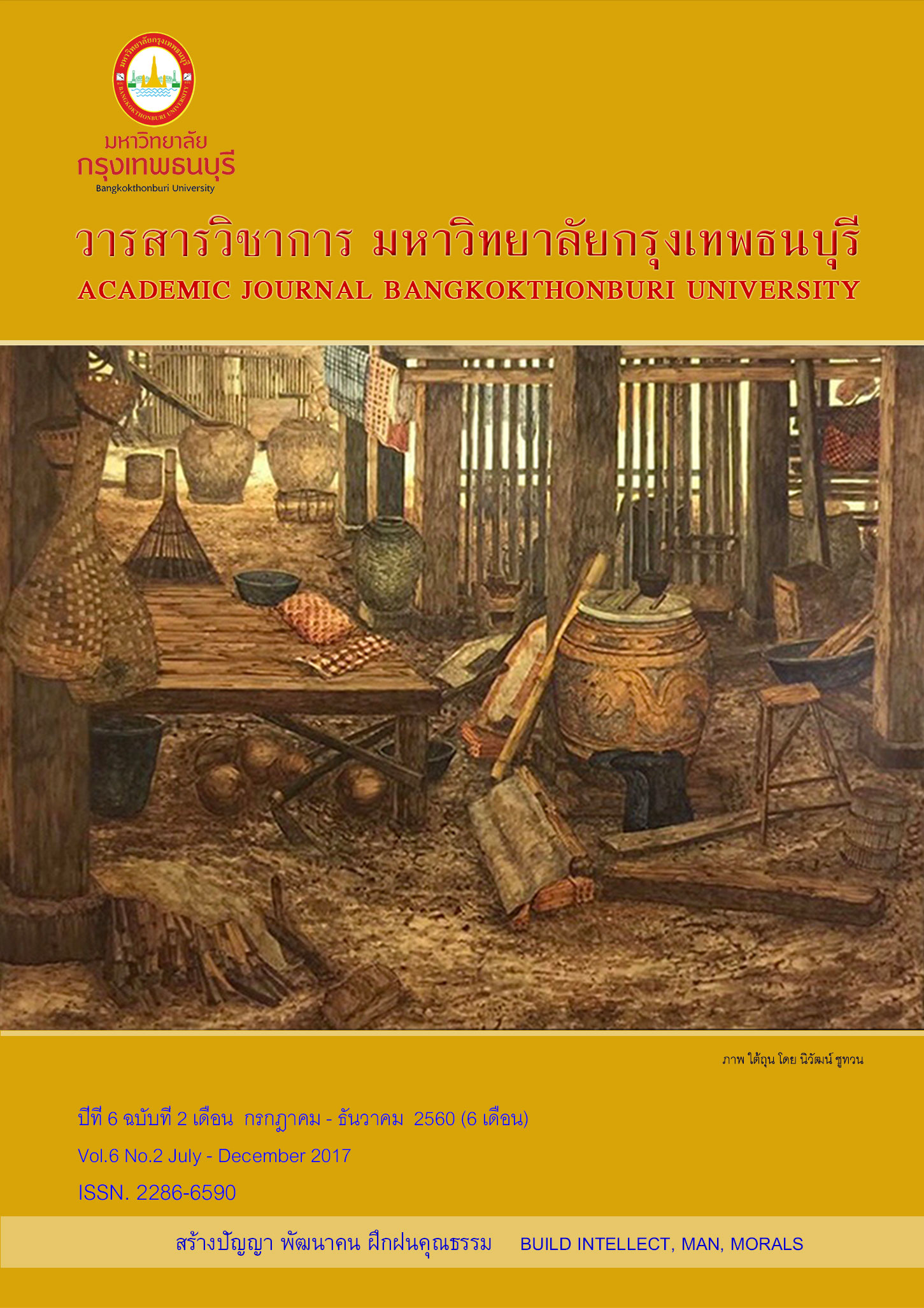Cross-Cultural learning process of Thai spa Uniqueness and Identity for Russian Customers in Moscow City Russian Fedderation.
Main Article Content
Abstract
The objectives of this dissertation were 1. To study Thai Spa uniqueness and identity for Russian customers in Moscow city, Russian Federation, 2. To study how to create the Cross-Cultural learning process of Thai Spa uniqueness for Russian customers in Moscow City, Russian Federation, 3. To study the need of cross-cultural learning process of Thai Spa uniqueness for Russian customers in Moscow City, Russian Federation, and 4. To create The Cross-Cultural learning process of Thai Spa uniqueness and identity for Russian customers in Moscow city, Russian Federation.
This research was conducted using mixed methods. The quantitative research aimed to study the uniqueness using a questionnaire with the reliability of 0.852 as tool with 403 Russian customers. The samples were selected by purposive and quota sampling methods. The qualitative aspect focused on the identity by collecting data through in-depth interviews with 20 Thai spa entrepreneurs in Moscow City. It was found that Russian customers in Moscow City understood the uniqueness of Thai Spa in all five aspects: sight, taste, smell, sound, touch and Thai people habit uniqueness. It was also found that those with experience using Thai spa in Thailand and in Moscow had different understanding of the Thai spa uniqueness with statistical significance. It was found that Russian customers had highest level of their understandings (Mean 4.53) about how to process from 4 sources of learning: From people, media in spa, place, envelopment decoration and activities and create cross-cultural learning experience in Thai spa uniqueness before, during, and after service. It was also found that the sample with different age, educational level, income, and spa prior experience had different understandings with a statistical significance with those aged 41-60 years old, higher education, and income of more than 200,000 Rubles / month had highest level of learning. It was found that the Russian customers in Moscow City had a need for a Cross-Cultural learning process in Thai spa uniqueness through before, during, and after service from four sources of learning and with the Russian context the need for staff to speak Russian and need Russian Administrator. The researcher has proposed the creation of learning process that would be appropriate to the context of the Russian customers as follows:
Before service, there should be Thai style signage, interior decoration with Thai style painting and architecture (brochure), Thai herbal drinks and Thai herbal candy, Thai herbal aroma in the hall, Thai Music, clothes and shoes changing, Russian speaking receptionist and Russian Administrator.
During service, there should be Thai herbal aroma in the massage room, Thai spirits worshipping and Thai traditional massage (royal and national pattern) Thai therapist wearing Thai uniforms, hard massaging to focus on paying close attention and the therapist providing information during massage with verbal gestures and Thai staff able to speak Russian.
After service, there should be Thai interior decoration, Thai herbal drinks and Thai herbal candy, Thai herbal aroma in the hall, Thai Music, clothes and shoes changing, the receptionist providing information by documents or brochure and say goodbye and thank you in Russian language.
498


